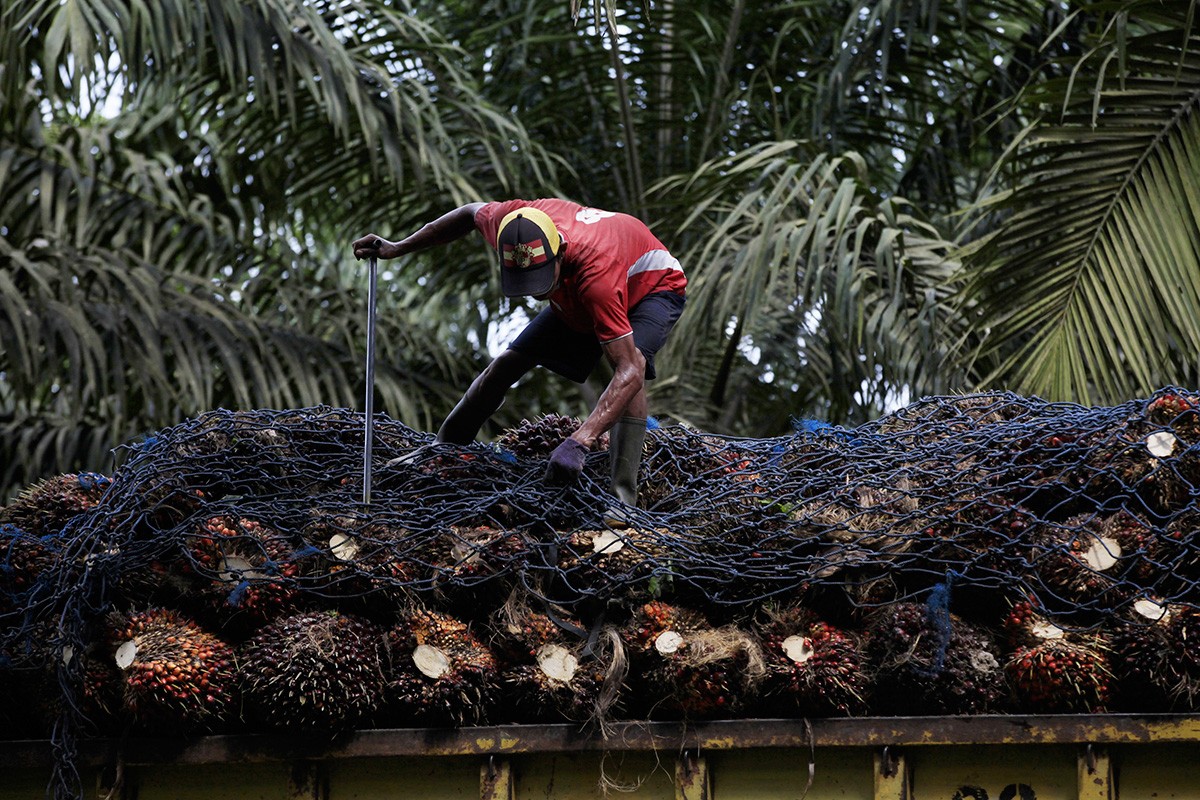Popular Reads
Top Results
Can't find what you're looking for?
View all search resultsPopular Reads
Top Results
Can't find what you're looking for?
View all search resultsTrade barriers blamed for decline in palm oil exports
The March implementation of the European Union's RED II policy also contributed to the decline in April.
Change text size
Gift Premium Articles
to Anyone
T
he Indonesian Palm Oil Producers Association (Gapki) has said that crude palm oil (CPO) exports fell significantly in April, as destination countries had started introducing regulations that were prohibitive toward Indonesia’s main export commodity.
Gapki’s data shows that CPO exports in April fell 18 percent month-to-month (mtm), from 2.96 million tons in March. Meanwhile, 2.79 million tons of CPO was exported in May, a 14 percent increase from April's figure.
“Although the export performance started growing in May, it was still below our expectations,” Gapki executive director Mukti Sardjono said on Monday in a press statement.
Exports of CPO and derivative products (excluding oleochemical and biodiesel) fell to 2.01 million tons in April, a 27 percent mtm decline from 2.76 million tons in March. Exports of CPO and derivative products reached 2.40 million tons in May, an 18 percent mtm increase.
Mukti said that several traditional markets for Indonesian palm oil, like India, had introduced regulations that did not favor the commodity, adding that Malaysia currently dominated the Indian palm oil market.
Malaysia, the second largest palm oil producer after Indonesia, was able to penetrate the Indian market because of its 2011 Comprehensive Economic Cooperation Agreement (CECA) with India, which offered reduced tariffs of 45 percent instead of 54 percent.
Mukti called on the government to accelerate its negotiations for a trade agreement with India to improve the competitiveness of Indonesia's CPO and palm oil products.
Gapki also recorded a weakening trend in palm oil exports to China and Bangladesh.
Mukti said that meanwhile, the European Union implemented the RED II policy in March, which weakened Indonesia's palm oil exports to EU countries.
The RED II is based on a determination that palm oil expansion has caused widespread deforestation. (bbn)










